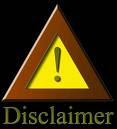Every year, at the start of the spring season, your organization hosts a raffle in order to raise money to support its mission. This year there was an exceptional turnout and sales of raffle tickets went through the roof. A local resident was the lucky winner of the raffle. The payout was $5,000 and that is all the winner could talk about for weeks. Your organization was equally happy because it raised $20,000, net of the prize, almost doubling the amount raised last year. At board meetings, staff meetings and at lunch it was a topic of discussion for the remainder of the year and encouraged thoughts of how to raise even more funds in the coming year.
Several months later, on January 31st of the following year, your astute bookkeeper wonders aloud, “we had a raffle winner last year. Do we need to send a tax form or something”? In a panic a call is made to the organization’s accounting firm. I am sure this scene plays out like this every year either in your organization or another organization. So, what does your organization do as far as reporting winners of games you host during the year?
Reportable Winnings
Generally speaking if your organization pays a winner or winners of a game more than a certain amount, you are required to report the amount and information about the winner(s) to the Internal Revenue Service. The threshold amount at which the winnings become reportable depends on the type of game involved (i.e., raffle, bingo, slot machines, poker, to name a few) and ranges from as low as $600 to as high as $5,000. In addition, some games allow you to reduce the amount of winnings by the wager (“proceeds from a wager”) in determining whether the threshold has been met. Other games do not permit this option and require the full winnings be reported.
Reporting Winnings
Reportable winnings are defined as the amount of your winnings that exceeds the amount of your wager. With cash prizes such as a sweepstakes, wagering pool, lottery, raffle or poker tournament your reportable winnings are the amount of cash you received less the amount you paid to purchase the ticket(s). With non-cash items (e.g., a car) your reportable winnings are the difference between the fair market value of that non-cash item and the amount you wagered.
Each time you pay reportable winnings, you must complete a Form W-2G, Certain Gambling Winnings, to report the winnings to the IRS and to the winner (the “payee”). To complete this form you will need certain information from the payee – name, address, taxpayer identification number (e.g., social security number for an individual). This information should be provided on Form W-9 and signed by the payee. You may want to verify the information given to you. Additional rules apply if there is a group of two or more winners.
Income Tax Withholding
By now you are thinking “what a lot of work!”. Well, did you know you may also have to withhold income tax from those winnings? If reportable winnings of cash are more than $5,000 you must withhold income tax from payment of these winnings (see “Reportable Winnings” above). Exceptions to this rule apply to games such as bingo, keno, slot machines and other wagering transactions.
Reportable winnings of non-cash items, such as a car, in excess of $5,000 are also subject to withholding. But how do you withhold tax from a non-cash item? Typically, the winner pays the withholding tax to the organization. But there are other means of withholding the tax.
All winners (cash and non-cash) from which you are required to report and/or withhold tax should sign the Form W-9 before any winnings are distributed. The amount of the winnings and taxes withheld from winnings are reported on Form W-2G. The winner must sign the Form W-2G if he is the only person entitled to the winnings.
Backup Withholding
What if your organization did not obtain a correct W-9 beforehand or did not properly withhold the required backup withholding and the winner refuses to furnish the correct taxpayer identification number? You will not be able to properly complete the Form W-2G. What happens next? Your organization could be responsible for paying the backup withholding amount (if unable to obtain from the winner). The rate of backup withholding may be higher than the regular withholding rate.
Other Filing Requirements
Taxes withheld from gaming winnings are called non-payroll withheld taxes. The total amount of federal income taxes withheld (regular or backup) during the year on payments of winnings, and reported on all the Forms W-2G filed during the year, must be reported on Form 945, Annual Return of Withheld Federal Income Tax. Depending upon the amount of the income taxes withheld for the year, you may pay the tax with your annual Form 945, or on a monthly or semi-weekly schedule. Again, threshold amounts dictate when to deposit the tax. Be sure that these non-payroll taxes are deposited separately from any payroll taxes for which your organization is liable.
The Last Word
After reading this blog you probably have a lot of questions. And, rightly so. Remember that the reporting requirements become a reality at the time you are paying out the proceeds of the winnings from a game to the payee. Avoid the panic at the end of the year.
- Know when you have reportable winnings.
- Collect the necessary information from the winner (payee) before paying out the winnings.
- Withhold income taxes, if necessary.
- Report those winnings and withheld taxes on the proper forms and file timely.
Please contact Elko & Associates Ltd if you have any questions or need assistance in the accounting and reporting of winnings from gaming activities. I also encourage you to read a related blog, Don’t take the “fun” out of fundraising (1/24/2011), which delves into other issues your organization may encounter with gaming activities, in general.

